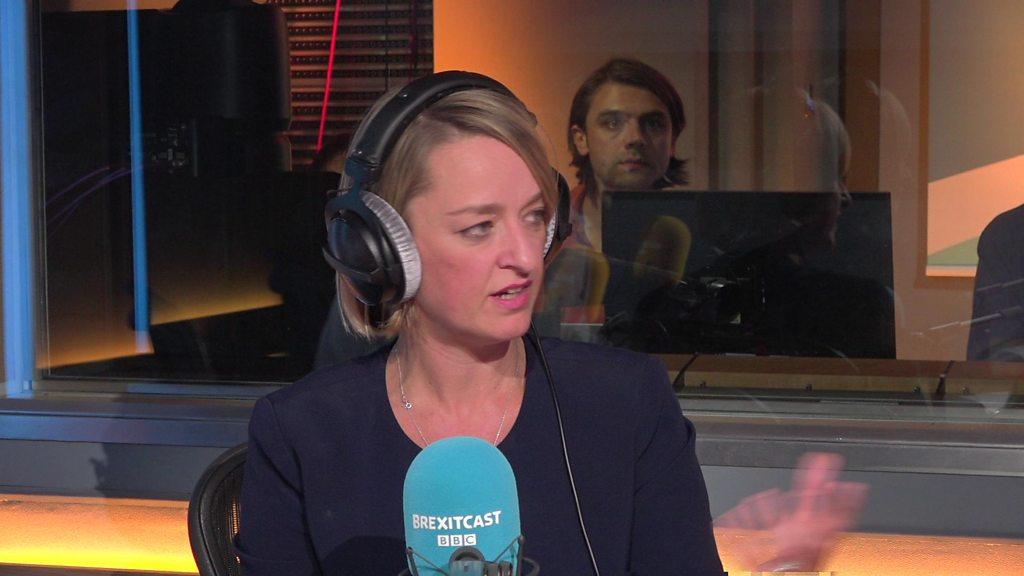No-deal Brexit: What are the Welsh Government's preparations?
- Published
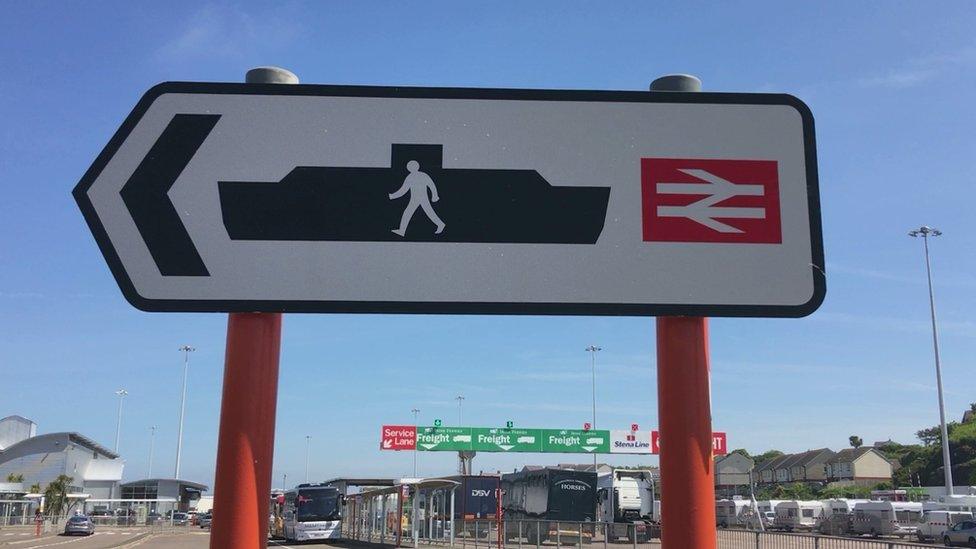
The A55 is a major route for lorries travelling to Holyhead to cross to Ireland
Plans to stack lorries on the A55, stock up on medical devices and help food banks are among measures being taken in Wales to help cope with a no-deal Brexit.
The Welsh Government has published its plans for the possibility of the UK leaving the EU without a deal.
But it said it was limited in what it could do.
Last week UK government papers warned of food price rises and riots as potential risks of a no-deal Brexit.
"Reasonable worst case assumptions" in the Yellowhammer contingency plan included reduced medical supplies, a reduction in certain types of fresh food, and delays of more than two-days to cross-channel lorry traffic.
Prime Minister Boris Johnson has said he wants to leave the EU with a deal, but the current exit date is set for 31 October and no deal has yet been agreed with MPs in the Commons.
The Welsh Government is not responsible for Brexit, but it has made preparations to handle the impact of leaving the EU without agreement in the areas it does control, such as social-care.
What are the plans?
The 35-page document, external covers a range of different areas - from transport to hate crime:
Amid fears that the amount of UK-EU traffic could fall by 40-60% if nothing is done to mitigate it, the Welsh Government has developed a 12-15 week supply of medical devices and clinical consumables
A bank of animal vaccines has been set up in the event of an outbreak of disease
Plans are in place at Holyhead to cope with likely additional customs checks for Ireland, including an overflow facility for hauliers and to stack lorries on the A55 in north Wales if needed
Reassurances have been received from all major supermarkets about food supplies to Wales and to more remote communities, the document claimed
But changes may be necessary to hospital, school and care sector menus if certain foods are more difficult to get
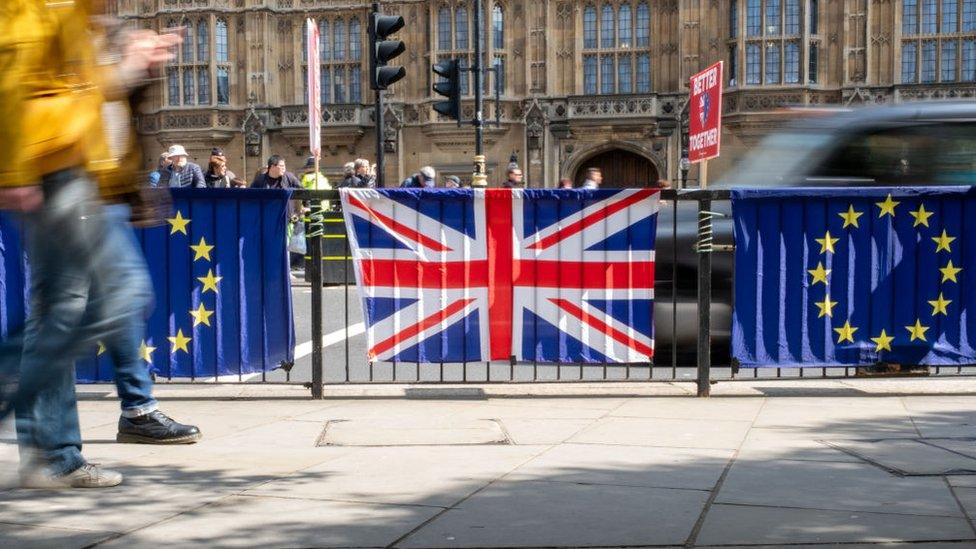
The Welsh Government document said: "This represents a scale and breadth of work which is unprecedented in our history as a government and a nation.
"But it is also important we recognise the very real limits of what we can do to minimise the full impact of a no-deal Brexit."
It added: "The biggest determining factor affecting our ability to prepare effectively is the UK government itself, and its willingness to provide additional funding, share information and meaningfully work with us."
Paul Davies, Welsh Conservative assembly leader, said the prime minister had made it "absolutely clear that his priority is to get a deal".
"This is a worst case scenario," he added.
"I'm hopeful that we will get a deal and we will leave the European Union in an orderly fashion."
Michael Gove insisted all necessary steps to prepare for no deal are being taken during a trip to Holyhead
But Brexit minister Jeremy Miles said the Welsh Government was less involved in preparations under the current PM than the last one. He said this had existed under Theresa May but was "lost" under Boris Johnson.
First Minister Mark Drakeford told AMs on Monday that ministers are making £2m available to increase the coverage and capacity of food banks. There are warnings that low-income groups could be disproportionately hit.
He said the impact of a no-deal exit could not be fully prepared for.
Giving evidence to the assembly's external affairs committee, he said: "We will reach the 31 October and if we were to leave the EU without a deal on that day we will be as ready as we can be, and that will never be ready enough."
Plaid Cymru's Delyth Jewell said the action plan "makes plain just how disastrous a no-deal exit would be for communities across Wales".
"It also serves to show that Wales' precarious situation is exacerbated by the fact that so many of the levers of power are in chaotic Westminster control," she said.
Mark Reckless, Brexit Party assembly leader, plans to question the Welsh Government in the Senedd on Tuesday "to ensure they are making the right preparations for the people of Wales leaving the EU even though they are trying to block Brexit and deny democracy".
A UK government spokesperson said preparations were being stepped up and it was working with businesses and industry across Wales and the rest of the UK and had announced £108m of funding to support them.
"We have also launched a large scale public information campaign setting out what business and the public need to know and do to prepare," they added.

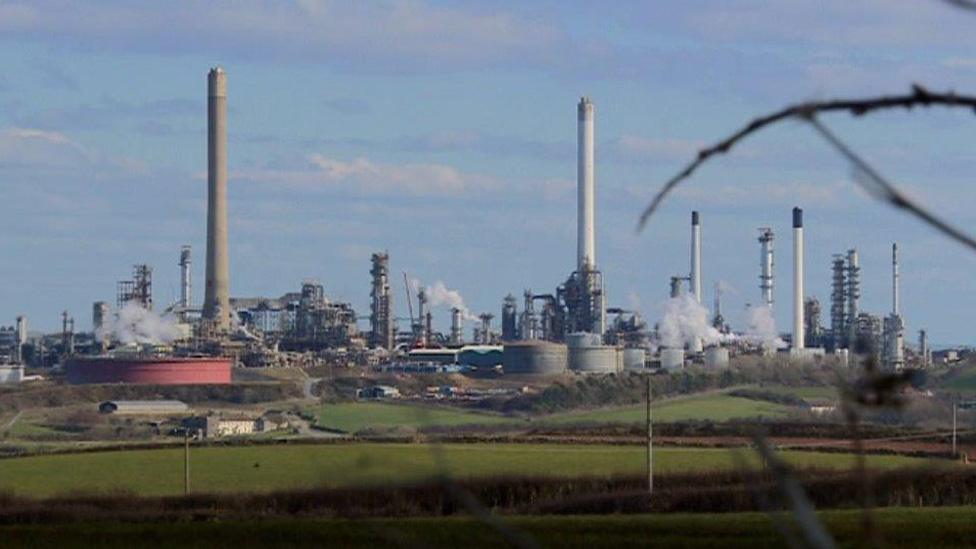
The document makes no mention of the Valero oil refinery
Analysis by Felicity Evans, BBC Wales political editor
Three things stood out when I read this document - which is in places vague and lacking detail on what officials are planning.
The first is the level of uncertainty about what will or won't happen in the event of a no-deal Brexit - and the second is the lack of control the Welsh Government has over many of the problems that might occur.
They say the "vast majority of systems and processes… operate on a UK wide basis" and they're relying on the UK government getting this right.
On other key things, like getting food out to remote areas, they're relying on the private sector - they have "sought and received" assurances from the major supermarkets.
The third thing is what's not in there. Yellowhammer's redacted paragraph 15 was widely assumed to raise questions about the future of the UK refineries. That prompted the Welsh Secretary, Alun Cairns, to declare that Valero refinery in Pembrokeshire was "safe".
The Welsh Government's paper makes no mention of refineries.

Last week's Operation Yellowhammer disclosure revealed fears of "clashes" with as many as 40 fishing vessels predicted to enter Welsh waters illegally, or already be there, on the first day of Brexit.
The preparations say "protocols" have been agreed with the UK government, police forces and the Royal Navy.
Officials are assessing the impact of up to 10,000 UK nationals returning from the EU and requiring services such as housing and education.
In case the impact of pressures resulting from a no-deal Brexit become difficult to manage locally, plans are in place to mobilise an "emergency co-ordination centre".
Correction 2nd October 2019: An earlier version of this story suggested the Yellowhammer document had referred to the potential risk of rioting; it has been amended to more closely reflect the paper's exact wording, which referred to protests and "a rise in public disorder and community tensions".
- Published12 September 2019
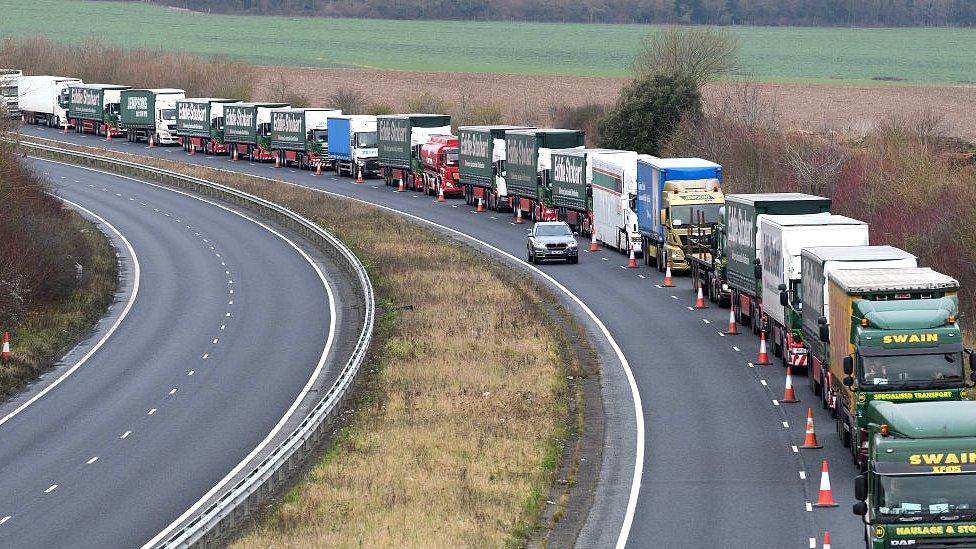
- Published20 September 2019

- Published11 September 2019
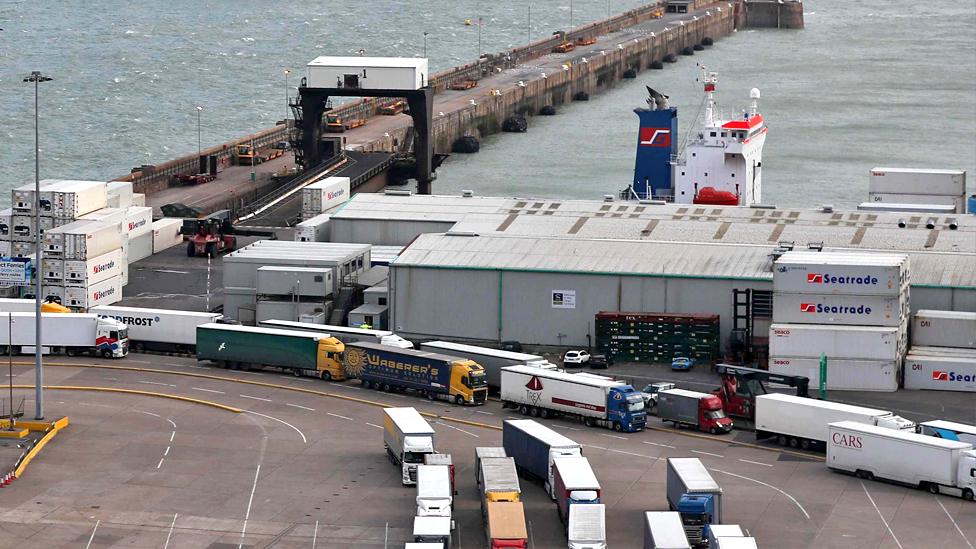
- Published11 January 2019

- Published12 September 2019
